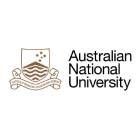Bachelor of Asia-Pacific Affairs (Ritsumeikan)
- Posted by The Australian National University
- Home
- Courses
- The Australian National University
- Bachelor of Asia-Pacific Affairs (Ritsumeikan)
Bachelor of Asia-Pacific Affairs (Ritsumeikan)
The Bachelor of Asia-Pacific Affairs provides students with an in-depth exploration of Asia-Pacific regional affairs drawing on the strength of ANU in four different subject and disciplinary areas including politics and government; international relations and security; conflict and peacebuilding; history and cultural identity. This innovative program will give students a…
Categories
COURSE DESCRIPTION
The Bachelor of Asia-Pacific Affairs provides students with an in-depth exploration of Asia-Pacific regional affairs drawing on the strength of ANU in four different subject and disciplinary areas including politics and government; international relations and security; conflict and peacebuilding; history and cultural identity. This innovative program will give students a unique opportunity to understand the transnational forces and contemporary challenges facing the Asia-Pacific region, and to deepen their understanding and appreciation of different Asia-Pacific cultures.
The program will facilitate a cross-crediting arrangement with Ritsumeikan University (RU) in Japan that will allow for student mobility in both directions. Students who study at both ANU and RU will, upon successful completion (and with cross-crediting), be eligible for the Bachelor of Asia-Pacific Affairs (ANU) and the Bachelor of Global Liberal Arts (RU). Bachelor of Asia-Pacific Affairs (BAPAF) students commencing study at ANU will be required to undertake two years of study at ANU and two years of study at RU. This program is only open to domestic students and will admit up to 10 students per year to begin studies at ANU.
Bachelor of Asia-Pacific Affairs (Ritsumeikan) students must apply directly to RU and not through ANU. Students will commence study at RU and undertake three years of study at RU and one year of study at ANU. This program will admit up to 90 students per year to begin studies at RU’s Osaka Ibaraki campus.
Career Options
ANU ranks among the world’s very finest universities. Our nearly 100,000 alumni include political, business, government, and academic leaders around the world.
We have graduated remarkable people from every part of our continent, our region and all walks of life.
REQUIREMENTS
An ATAR of 82 or an equivalent rank derived from an Australian Year 12 qualification or international equivalent
The ANU English Language Admission Requirements for admission into a Bachelor Degree program, as advertised by ANU at time of application
English Language Requirements
IELTS Academic and IELTS UKVI Academic [excluding One Skill Retake and IELTS Online] – Overall score of 6.5 overall with minimum 6.0 in each band.
TOEFL iBT [excluding Home Edition] – Overall score of 80 (Reading – 20; Writing – 20; Listening – 18; Speaking – 18).
Cambridge C1 Advanced – Overall score of 176 minimum 169 in each band.
PTE Academic and PTE Academic UKVI [excluding PTE Academic Online] – Overall score of 64 minimum 55 in each band.
EDUCATIONAL INSTITUTION
The Australian National University (ANU) is a public research university and member of the Group of Eight, located in Canberra, the capital of Australia. Its main campus in Acton encompasses seven teaching and research colleges, in addition to several national academies and institutes.
The Australian National University (ANU) is one of Australia's premier universities and ranked amongst the best in the world. It was created by Federal Parliament in 1946 to drive the nation forward and advance Australia's international standing through research and education of the highest quality. ANU is distinctive because of its national mission, international focus and impressive record in research and education for undergraduate and postgraduate students. Our leading researchers drive our educational programs and shape the ANU learning experience. Students at ANU enjoy excellent staff-student ratios and great employment prospects. They benefit from award-winning and challenging teaching, first-rate facilities and the collegial atmosphere of a residential campus.




